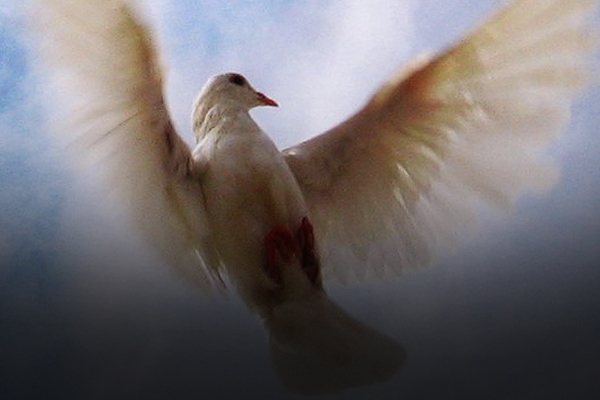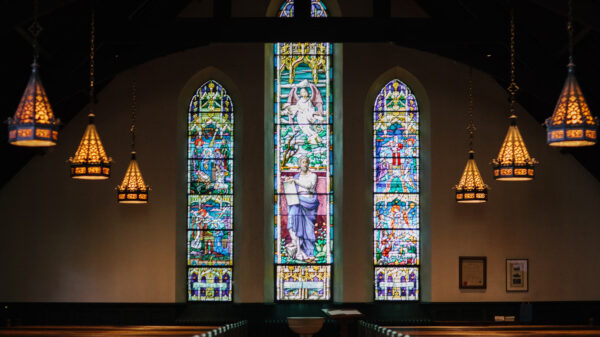
In the beginning, the pandemic seemed like it would be a momentary inconvenience. As hard as it was to close businesses, stop working, and try to stay indoors, we “knew” it would all be over soon. It was comforting knowing that the government had an end in mind. Nearly all new “safer at home” orders came with an expiration date. It was comforting to believe this wasn’t going to last forever.
The first expiration date came and went, but “safer at home” orders stayed in place. In some areas, the orders actually became increasingly broad and strict. Eventually, some areas began opening and hope returned; things were finally getting better. But as a new wave of COVID-19 came, previously lifted order returned. I’m not even sure now if there are any expiration dates in my home state. At this point, given recent history, few of us would likely place our hope in new proclamations about reopening our state.
I never realized the value of being able to plan the future, until now.
Prior to COVID-19, I thought I knew (more or less) what was going to happen in the next few months. I knew my work schedule, and I could safely plan a year in advance for my next wedding anniversary. The future was (more or less) “certain” because everything would (more or less) be the same. Nothing significant was likely to change. I took for granted my ability to plan for the future, and I took for granted the hope that accompanies plans. If I was having a hard week, I could always place my hope in a future plan.
But those plans seem elusive now. I cannot make plans like I used to. I don’t know when the current restrictions will be lifted, and there’s no way to know they won’t get stricter. It feels like we are all holding our breath, delaying our plans, and suspending our hope, waiting for it all to end.
But God does not wish for us to struggle in this way. In Matthew 6:25 – 34, Jesus said:
“I say to you, do not be worried about your life, as to what you will eat or what you will drink; nor for your body, as to what you will put on. Is not life more than food, and the body more than clothing? Look at the birds of the air, that they do not sow, nor reap nor gather into barns, and yet your heavenly Father feeds them. Are you not worth much more than they? And who of you by being worried can add a single hour to his life? And why are you worried about clothing? Observe how the lilies of the field grow; they do not toil nor do they spin, yet I say to you that not even Solomon in all his glory clothed himself like one of these. But if God so clothes the grass of the field, which is alive today and tomorrow is thrown into the furnace, will He not much more clothe you? You of little faith! Do not worry then, saying, ‘What will we eat?’ or ‘What will we drink?’ or ‘What will we wear for clothing?’ For the Gentiles eagerly seek all these things; for your heavenly Father knows that you need all these things. But seek first His kingdom and His righteousness, and all these things will be added to you. So do not worry about tomorrow; for tomorrow will care for itself. Each day has enough trouble of its own.”
I am convicted by Jesus’ words. Have I been relying on my own plans, rather than God’s calling? Have I been taking comfort in my own power, rather than on God’s sovereignty? In this chaotic season, I’m still struggling with impatience and uncertainty. Maybe you are too. Let’s give our concerns over to God, rest in His plans and trust His power. It’s time to put our hope where it belongs. Have I been relying on my own plans, rather than God’s calling? Have I been taking comfort in my own power, rather than on God’s sovereignty? Share on X
Detective Jimmy Wallace (J. Warner’s son) is a Police Investigator in Los Angeles County, a Christian Case Maker, host of the Incarnate Investigation Podcast and Incarnate Investigation Video Series (featured at ColdCaseChristianity.com).
Jimmy Wallace is a detective who holds a BA in Psychology (from UCLA) and an MA in Theology - Applied Apologetics (from Colorado Christian University).








































Matthew Rhodes
August 11, 2020 at 7:44 pm
Well said.
Dani Christensen
August 12, 2020 at 1:21 pm
This makes me think of James 4:13 as we boast about knowing what tomorrow holds and plan out our days as if we have control of what will happen in the future. This is pride and arrogance of self sufficiency instead of dependance on Gods providence, power, and will. This pandemic is humbling.
Dennis Gannon
August 12, 2020 at 3:46 pm
There is a cult of germ religion. It is not science. No one has proven the existence of a corona virus per Koch’s postulates. The CDC years ago combined the very few flu deaths (under 100) with the pneumonia deaths in their death counts. This year, they changed this category into Covid 19 deaths. They also issued NEW guidelines to double count deaths. Drownings could also be Covid deaths IF the doctor thought the victim MIGHT have also had cold or flu SYMPTOMS. The same with car accidents, murders, etc etc. With the new numbers we get a fake pandemic. Under the old system, it could still be less than 100 deaths. Politicians are fooled by the new fake numbers and have responded with many unconstitutional decrees. Notice they have bypassed the State and Federal legislatures, no laws passed, only decrees. The decrees to wear masks are medically harmful, NOT helpful. This has all been a chastisement by Jesus the LORD. The churches have been exposed as weak for failing to follow Peter’s example to continue preaching. Instead, many closed. This is a repeat performance of the 1918 Spanish Flu practice. Many pastors confessed to being weak then and apologized afterwards.